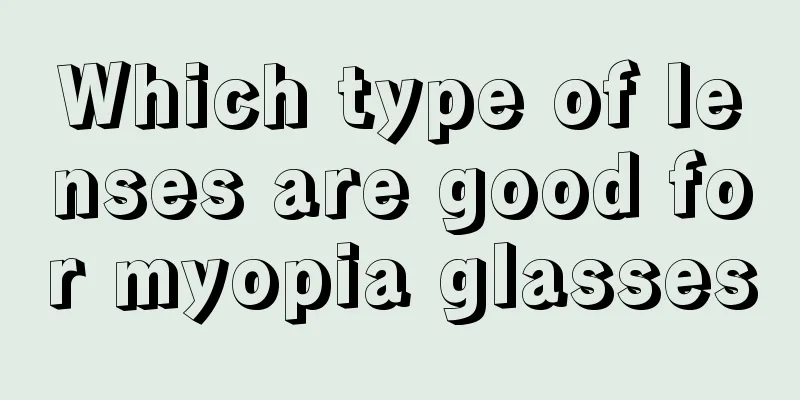Which type of lenses are good for myopia glasses

|
Nowadays, many children are found to be myopic when they enter primary school. They have to wear glasses because they cannot see the blackboard clearly. Parents all want to choose the best glasses for their children. As long as the frames fit well and don't fall off, it's fine. Choosing the lenses is usually a bit difficult. After all, we don’t know much about eyeglass lenses, so when we see lenses of various materials in eyewear stores, we don’t know which one is better. In fact, resin lenses are generally better. Personally, I think resin lenses are more cost-effective, so next, I will focus on resin lenses. I hope the common sense I have shared can help you choose a suitable lens. There is no best lens, only the most suitable one. Resin lenses are divided into ordinary, ultra-thin, extra-thin, spherical, aspherical, photochromic and non-photochromic. The thickness of the lenses is divided into: ordinary, ultra-thin, and extra-thin; you can choose according to your personal preference. Generally, thin lenses will have a relatively higher price. There is no need to be particular about this. Generally, if the lens changes color, it can be inferred that the lens is radiation-proof. If it does not change color, it is not radiation-proof. It is recommended to choose photochromic lenses. Lenses can be divided into spherical and aspherical depending on how objects are viewed. Aspherical surfaces allow objects to be seen more clearly without distortion and can also prevent further deepening. A spherical surface means that objects can be viewed on only one plane. If you squint and look around, the scenery you see may be a little distorted and have no sense of three-dimensionality. Resin lenses are widely used because of their good quality and relatively affordable price. However, its disadvantage is that it is easy to scratch and there is no way to repair it once scratched, so remember to put it in the glasses case when not in use, which can increase its service life. Under normal circumstances, a resin lens can be used for 2 years, and if it is well protected, it can be used longer. Lenses have more and more functions. Anti-ultraviolet, anti-fatigue, anti-radiation, photochromic lenses, etc. are gradually entering the public's field of vision. However, which type of lens is suitable for you depends on your eye usage. For example, if you are a student and often use your eyes at close range, it is easy to get eye fatigue, then you might as well wear a pair of anti-fatigue lenses; if you are an office worker, facing the computer every day, and often exposed to the invasion of blue light, it is definitely suitable for you to wear a pair of anti-blue light lenses; if you often run back and forth indoors and outdoors, it is definitely more suitable to choose a pair of photochromic lenses... So which type of lens is better depends on your own situation. |
<<: Advantages and disadvantages of blue light glasses
>>: Anti-slip cover for glasses
Recommend
How to know if there is no recurrence after surgery for colorectal cancer
Any malignant tumor will recur again, and so does...
Why does someone with lung cancer in the late stage breathe with his mouth open and roll his eyes? What should I do?
Mouth breathing and rolling eyes in the late stag...
How to check liver cancer with ultrasound? Detailed explanation of the characteristics of liver cancer with ultrasound
What is the role of ultrasound examination for li...
Eating more soy milk and milk can prevent breast cancer
Some people say that soy products such as soy mil...
Tips for making shoes look bigger if they are one size smaller
Nowadays, the convenience of online shopping make...
Early diagnosis method of cervical cancer
No matter which woman has cervical cancer, her fa...
Will Astragalus cause internal heat?
Astragalus is a relatively common Chinese medicin...
What are the methods to remove dandruff
Many people want to have healthy hair, especially...
What are the methods for preserving crabs?
In life, people always like to eat some delicious...
Can lung cancer lead to respiratory failure? If lung cancer is not treated in time, there will be five symptoms
In recent years, the incidence of lung cancer has...
Treatment of sequelae of thyroidectomy
In fact, there are many diseases nowadays, and th...
How much does a gastric cancer tumor marker test cost
The cost of gastric cancer tumor marker testing i...
Cancer signals hidden in urine
There is no physical discomfort, but only blood i...
What should patients with bladder cancer pay attention to in their diet after surgery
After surgery, bladder cancer patients should mai...
How to replenish water when suffering from diarrhea and dehydration
The gastrointestinal function of babies is relati...









